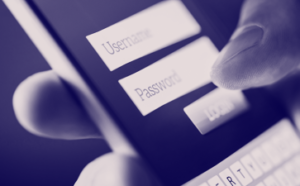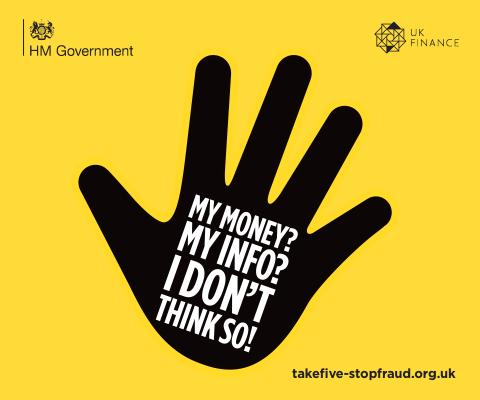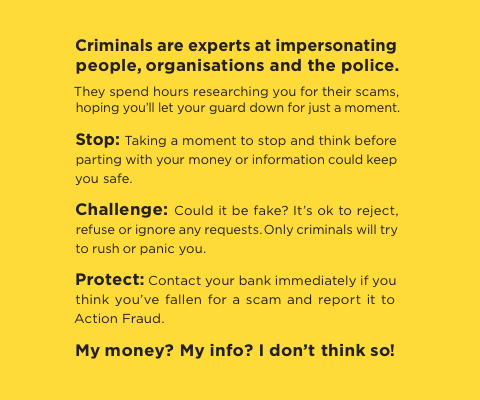Fraud Awareness
United Trust Bank (UTB) works hard to protect you from fraudsters. Please read through this fraud prevention webpage to help us to protect you from fraud.
United Trust Bank (UTB) works hard to protect you from fraudsters. Please read through this fraud prevention webpage to help us to protect you from fraud.

The COVID-19 pandemic has caused an increase in fraudulent activity and it’s important to us that our customers are protected from fraud during these challenging times.
The video below outlines a scenario where taking a moment to pause and think about the plausibility of a situation can prevent you from becoming the victim of fraud. You can find further information about the Take Five to Stop Fraud campaign and fraud prevention tips in the tabs below.
Fraud is when a criminal or dishonest person or organisation uses deception against another person or organisation with the intended purpose of financial or personal gain. Fraud is often commonly referred to as a scam or con.
There are many different types of fraud meaning that it is more important than ever to remain diligent in protecting yourself against fraud. Please read the ’Top tips for fraud prevention’ tab for further advice regarding fraud prevention.
Phishing |

Identity fraud |

Fake invoice scams |

Email Payment Fraud |

| Action Fraud is the UK’s national reporting centre for fraud. Please refer to their website for a full A-Z of different types of fraud actionfraud.police.uk/a-z-of-fraud. |
Below is a list of top tips to help protect you from fraud: |
| If in doubt, you can call the UTB Switchboard on +1 708 434 2214 or complete the quick enquiry form on the ‘Reporting fraud to UTB’ tab below. |



Please refer to the Take Five website to learn more about the campaign and read more useful tips in fraud prevention.
If you suspect that you have been the victim of fraud relating to your UTB account or someone claiming to be from UTB, please contact us immediately via the UTB Switchboard on +1 708 434 2214 or by completing the fraud reporting form below. The Fraud Team are available between 9am-5pm Monday-Friday.
Report a fraud to UTB |
UTB takes fraud seriously and will make every effort to assist you if you think that you might be a victim of fraud.

Organisations registered with Companies House with at least one director or a board of directors who are responsible for the decisions of the business.
Apply by post Apply onlineOrganisations registered with Companies House which consists of at least one general partner and at least one limited partner.
Apply by post Apply onlineOrganisations registered with Companies House where some or all of the partners have limited liabilities.
Apply by post Apply onlineOrganisations which are not registered with Companies House, consisting of at least two partners responsible for the running and decisions of their business.
Apply by post Apply onlineIndividuals who are the exclusive owner of a business, responsible for all profits and losses of that business.
Apply by post Apply onlineThe cash element of Self-Invested Personal Pensions (SIPPs) and Small Self-Administered Schemes (SASSs).
Apply by postCash being held for the benefit of a beneficiary, administered by named trustees.
Apply by postNot-for-profit organisations of two or more people, dedicated to a particular interest or activity.
Apply by post


For individuals applying to open a Cash ISA to utilise current tax year allowance
Apply by postFor individuals transferring a Cash ISA from an existing provider
Apply by post


We will be contacting our existing personal customers by email in due course to invite them to register for our newly launched online banking service.
Once invited you will need to have registered for online banking in order to continue. If you have registered you will have received your user details by post and can log in below.
For our Business and Charity customers, we plan to launch online banking for you early next year.
In the interim all accounts can be managed by email, phone or post. You can find details here
Unregistered customers please click on link to register
Personal Customers that have received their Online Banking details in the post

